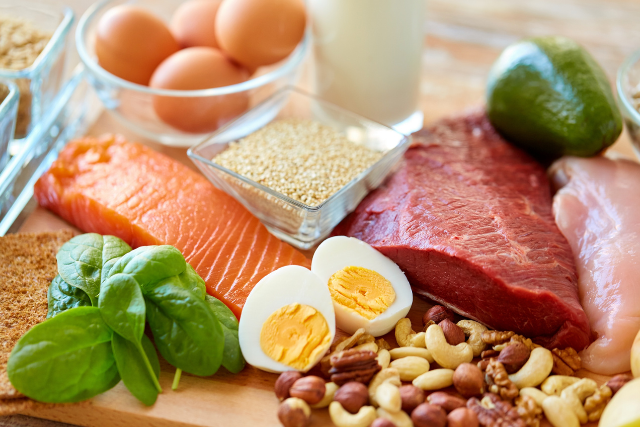Are you eating too much protein? In short, Americans generally consume more protein than the minimum recommendations, and while protein itself isn’t a direct cause of weight gain, excessive intake (especially in the context of high overall calories) can indirectly contribute to weight gain.
How Much Protein Are Americans Eating?
- On average, U.S. adults consume 16% of daily calories from protein, which translates to roughly 80 g/day on a 2,000-calorie diet—well above the RDA of 0.8 g/kg (about 56 g/day for men, 46 g/day for women) .
- Data show average intakes of 97 g/day for men and 69 g/day for women .
- About 60% of Americans are actively trying to increase protein intake, despite already exceeding recommended levels .
Is Excess Protein Leading to Weight Gain?
- Protein tends to increase satiety and support muscle mass, often aiding weight management .
- However, when protein is consumed in excess along with extra calories, it’s still converted to fat—since calories drive weight gain, not protein alone .
- Some studies suggest that diets high in total energy and a higher protein ratio can increase the risk of weight gain in children, although calories remain the primary driver.
- Diets that are high in animal protein may carry additional cardiovascular and metabolic risks, especially if calories exceed needs .
Summary
| Question | Answer |
|---|---|
| Are Americans consuming too much? | Yes, most exceed the RDA and consume ~16% of calories from protein. |
| Is protein causing weight gain? | Not by itself—excess calories are the true culprit, though excess protein may still add calories. |
| Are there risks to overdoing protein? | Potential risks include kidney strain (in at-risk individuals), nutrient imbalance, and cardiovascular issues from high animal protein intake. |
Recommendations
- Stick to 0.8–1.4 g/kg of protein daily, depending on age, activity, and goals .
- Distribute it evenly across meals (~20–30 g per meal) .
- Maintain overall calorie balance—protein shouldn’t push total calories over your needs.
- Prioritize balanced nutrition: fiber, whole grains, healthy fats, and diversified protein sources (plant and lean animal) .










